“Being a journalist in Ukraine: overcoming barriers and stereotypes” was the topic of a roundtable organized by the National Union of Journalists of Ukraine (NUJU), which was held on the basis of the exhibition titled Executed Free Speech currently taking place in the territory of the National Museum of the History of Ukraine in the Second World War.
The roundtable was attended by media women, researchers, experts, activists of public movements, and male and female students of the capital’s universities, in particular, Kyiv International University. During the event, various aspects of the activities of female journalists were discussed, as well as the problems and challenges they had to overcome. During the full-scale invasion, media women have to overcome challenges that are not typical for them, related to work and family issues at the same time.
“During the full-scale invasion, female journalists take responsibility for their relatives and friends who depend on them. Often, this aspect leads to the fact that they remain in the occupation or remain in dangerous conditions on the front line, putting themselves at risk and continuing to work, at the same time bearing responsibility for their loved ones,” said the First Secretary of the NUJU, Lina Kushch, during the event.
This opinion was confirmed by media women who had to experience the horrors of war and escape from the occupied territories – Svitlana Ovcharenko, the editor-in-chief of the Bakhmut newspaper Vpered and the editor-in-chief of Nashe Slovo publication from Volnovakha, Donetsk Region, journalist of the Media Initiative for Human Rights, Lidiya Tarash. Their video stories run during the roundtable did not leave anyone indifferent.
In particular, Lidiya Tarash hid for three weeks with her children and parents in a damp basement with an area of two by three meters. The invaders offered the media woman to work for them, but she refused. I left Volnovakha as soon as the shelling stopped. The way to the territory controlled by Ukraine was complex and lengthy. The NUJU helped Lidiya go to Poland for a few days to recover.
“I am very grateful to Sergiy Tomilenko and Lina Kushch, thanks to whom this happened. I recovered there, received new contacts, regained strength, got the inspiration to continue my journalistic activities in the future,” says Lidiya Tarash in her story.
The topic of women captured by russia was raised by human rights activist, former political prisoner, and director of communications of SEMA Ukraine, Liudmyla Huseinova. She had to go through all the horrors of captivity and prison, so now, she fights for the release of those who fell into the hands of the invaders, in particular, civilian hostages, among whom there are many women.
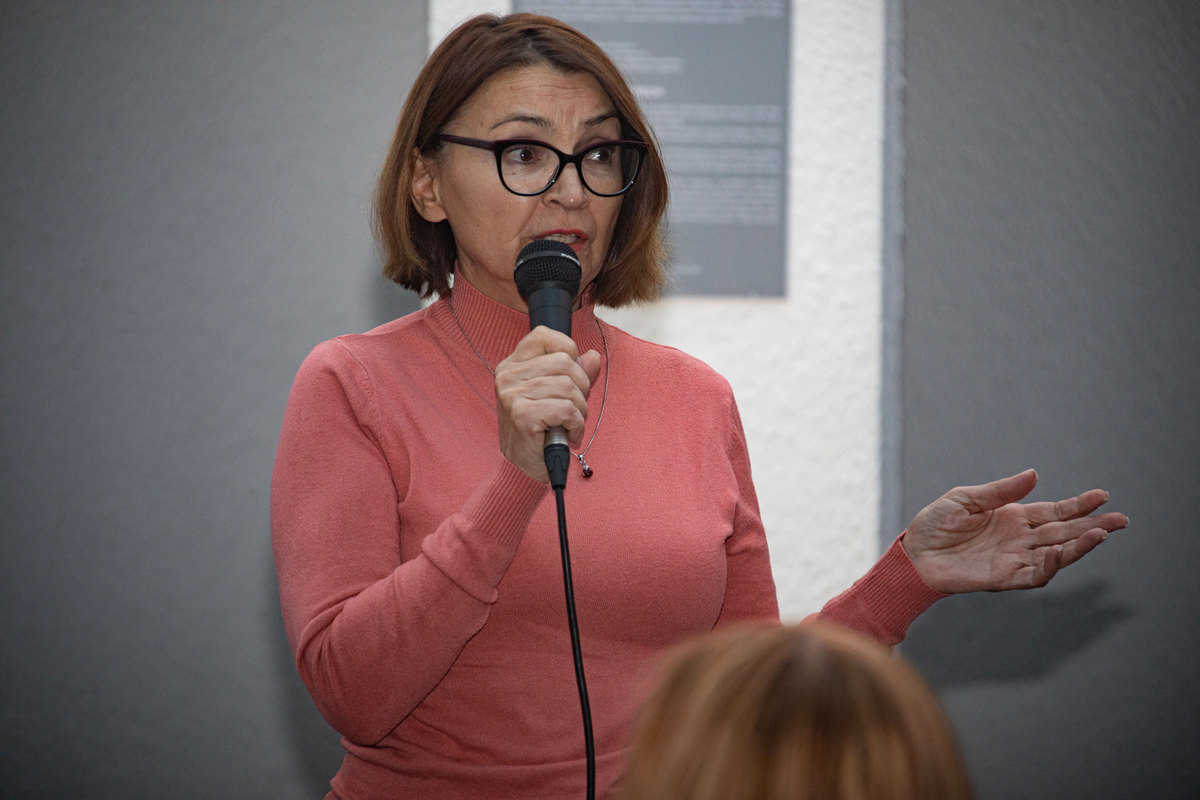
Liudmyla Huseinova spoke about the torments prisoners have to go through and about prisons and abuse… She also noted that media people who undertake to cover the topic of Ukrainians in russian captivity should remember why they are doing it. After all, the main thing is not a hype topic but the idea of solidarity with the captives and making efforts on their part for their liberation.
Journalist, communications expert, and founder of the Ukrainian Women’s Battalion NGO, Aliyona Danilova, united women to help our defenders together on a volunteer basis. So, she had something to share with the participants in the roundtable. Women volunteers have become a reliable rear for the military, who are bringing victory over the enemy closer. It is also an organization that is ready to defend human rights, values, and freedoms. The activities of the organization are diverse. One of the main areas is assistance to defenders in providing them with military equipment. Also, the Ukrainian Women’s Battalion NGO launches media projects to show the world the life of Ukrainians during the war, provides psychological assistance to women who suffered during the war, etc.
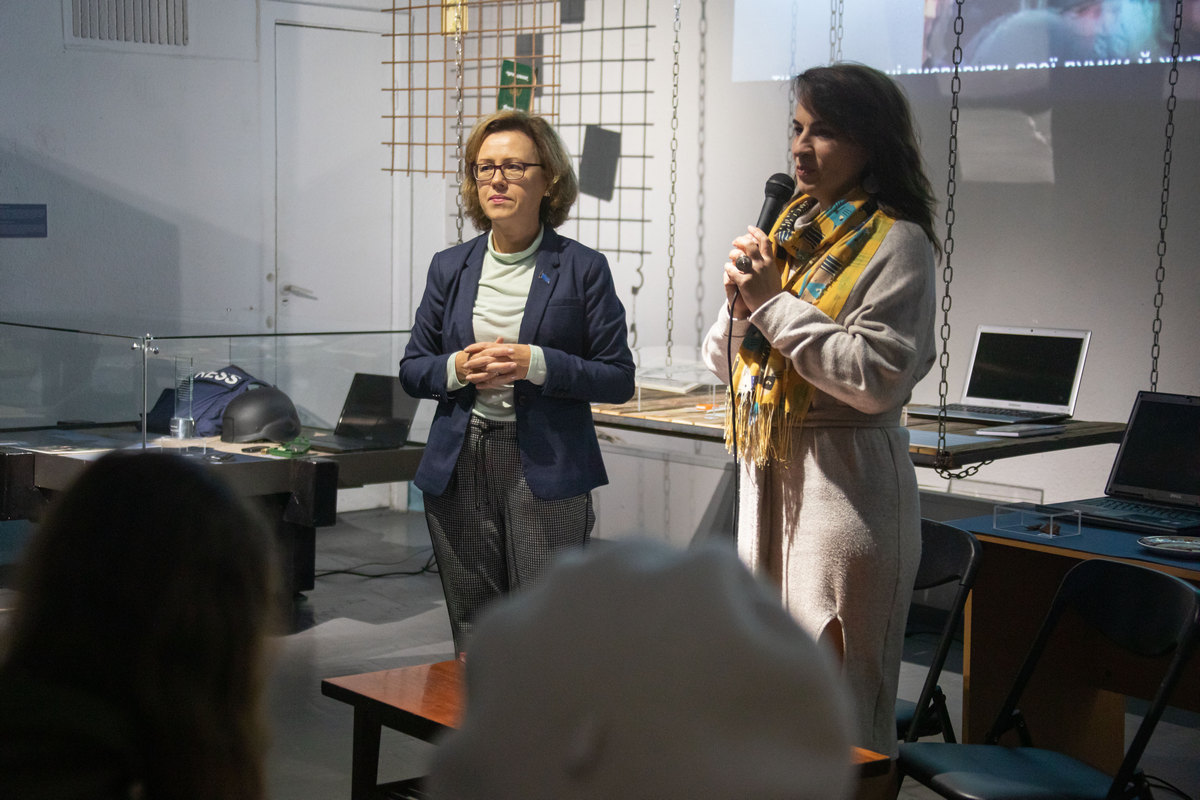
Olena Kalaitan, who, before the full-scale invasion of Ukraine by the russian federation, headed the newsroom of the Mariupol newspaper Pryazovskyi Robochyi, also told her story.
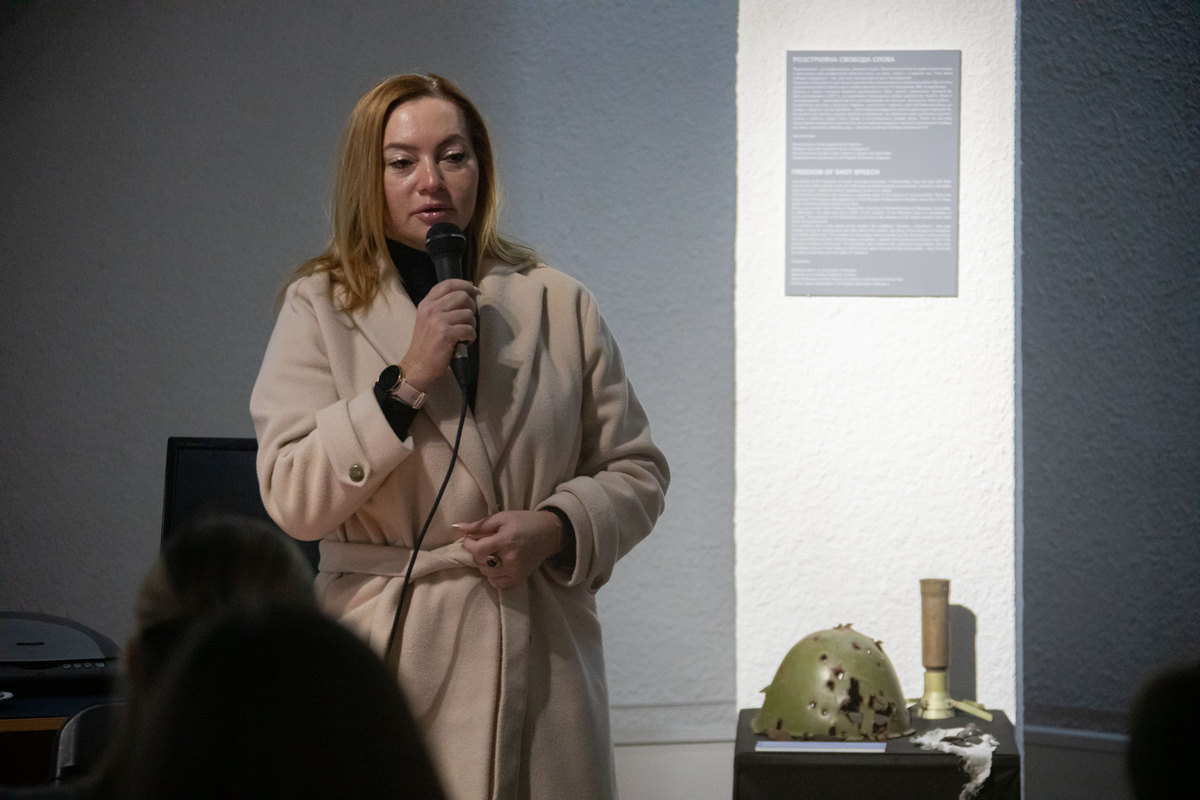
Valeriya Parkhomenko, a researcher of the survey Discrimination Of Media Women At Work and an assistant of the NUJU Journalists’ Solidarity Centers, talked about the work on a large-scale study in which the NUJU joined.
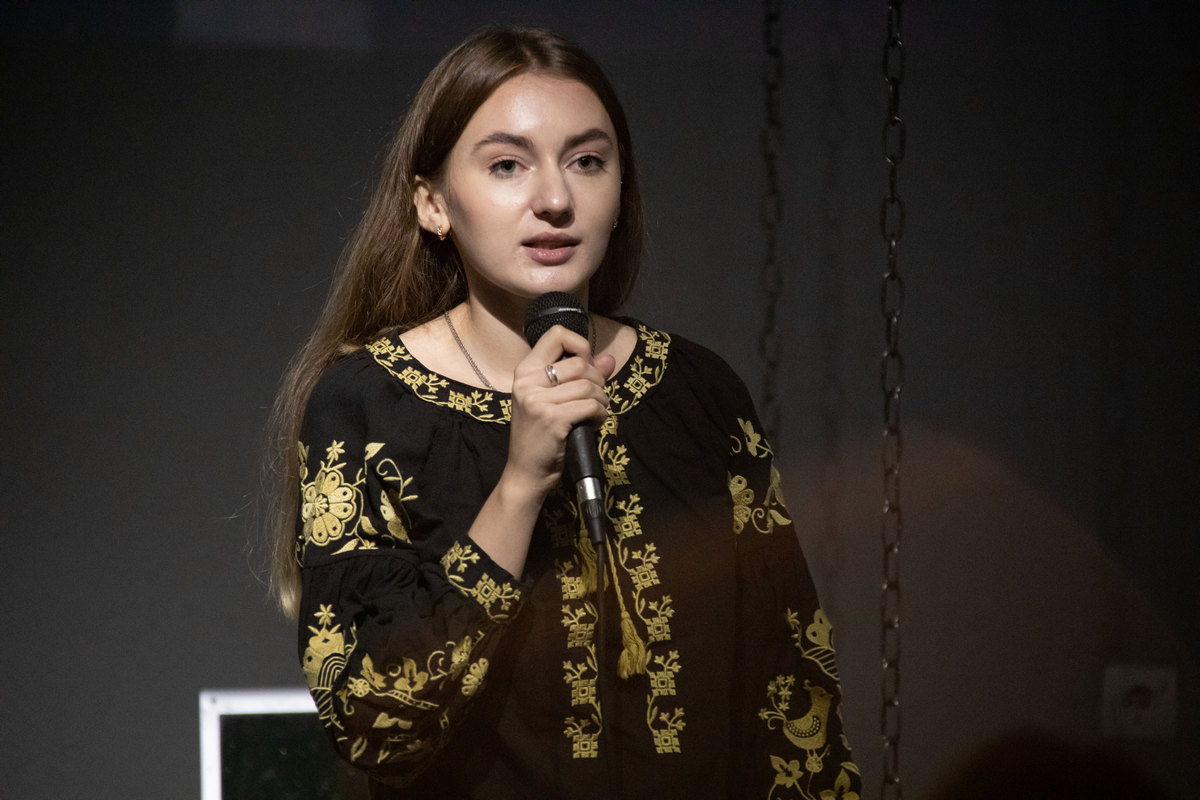
Thus, the expert group of the European Federation of Journalists on Gender and Diversity Expert Group (GENDEG) studies the situation of female media workers in European countries in order to develop measures to overcome discrimination in the workplace. The NUJU team, having joined the work, offered all willing female journalists to complete an anonymous survey: Discrimination Of Media Women At Work.
Representatives of all types of media in Ukraine took part in the survey: radio, television, print, and online media. Among the female respondents, 70% are journalists who create informational content. The preliminary results of the study were made public during the roundtable.
“In the answers, there were no reports of specific cases of discrimination during the performance of professional duties, and this is a good signal. We asked female journalists about a series of work situations that may indicate discrimination against media workers because they are female. Most of the interviewees answered that they had never encountered anything of that kind,” Valeriya Parkhomenko said.
However, the study also revealed a number of negative points. Media women experienced:
- public and/or private devaluation of their personality, abilities, and technical skills;
- sexist and degrading expressions;
- incorrect assignments at the workplace;
- hatred for career growth.
“However, the survey participants usually expected that it would resolve itself and forget about it because they were most afraid of being unemployed. In some cases, after contacting a certain department or person, the offender was punished, but we have such a response in one out of 37 cases. According to our assumptions, many situations are not perceived by female journalists as discriminating against them. Therefore, it is important to raise the awareness of female journalists about how to recognize violations and how to respond to them,” Valeriya Parkhomenko emphasized.
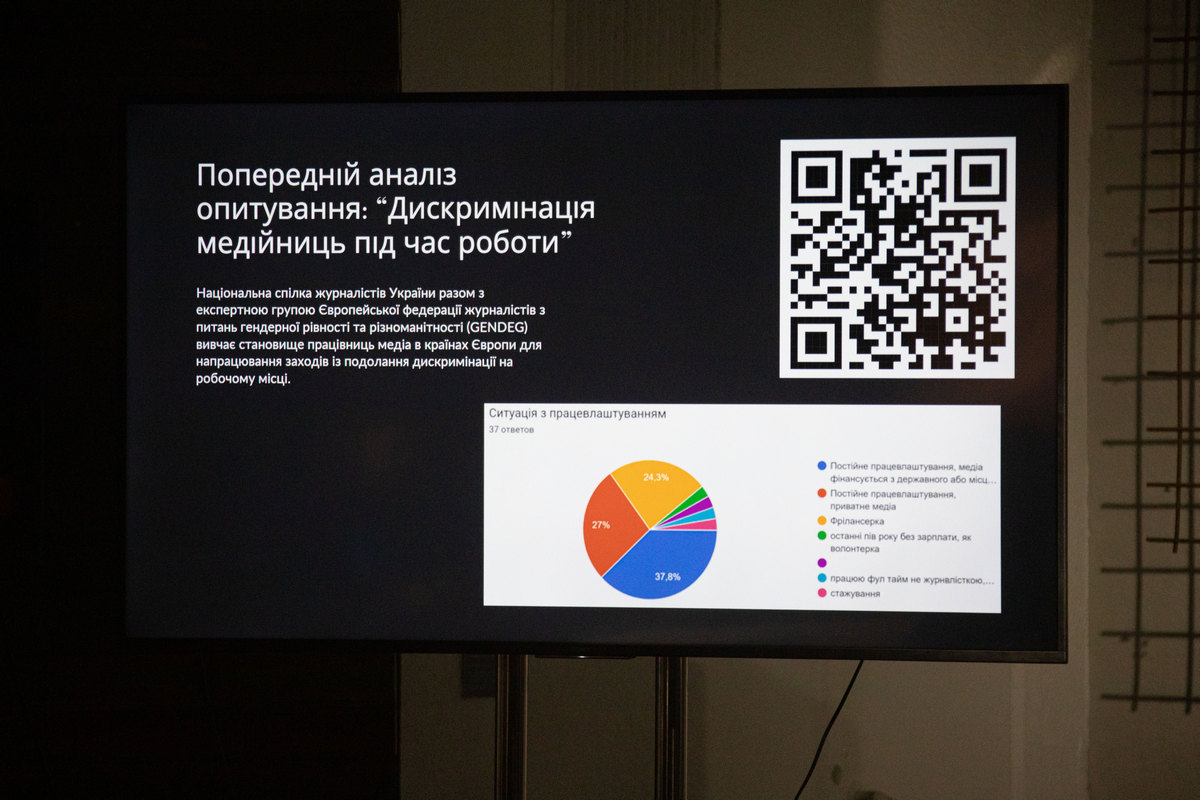
The results of the full study will be known before the meeting of the GENDEG expert group in November 2023, on the eve of the International Day for the Elimination of Violence against Women.
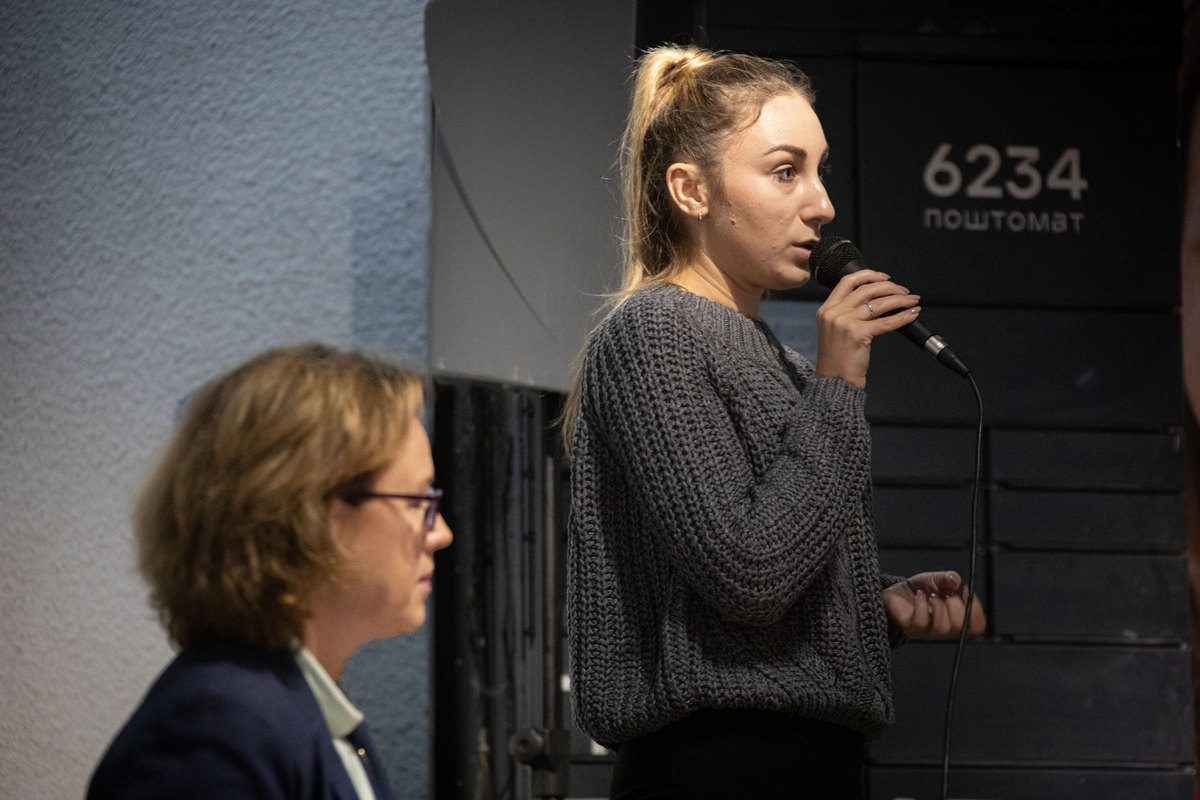
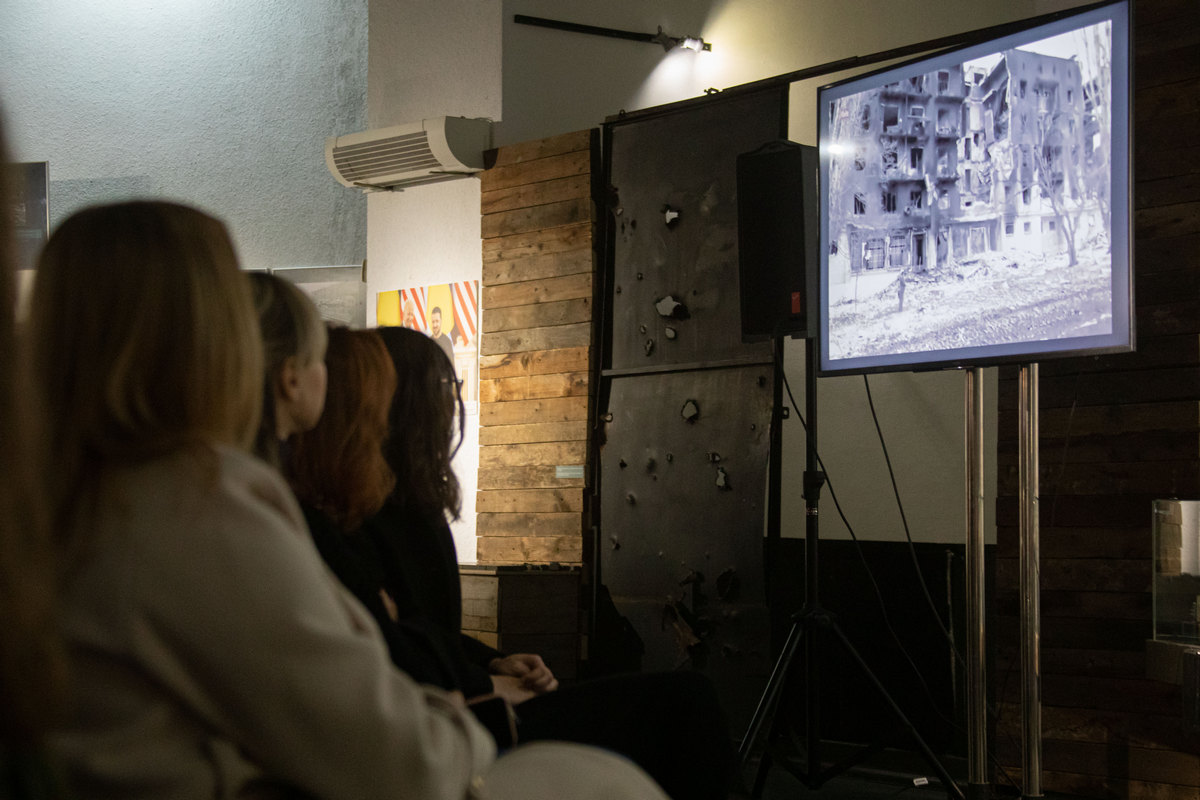
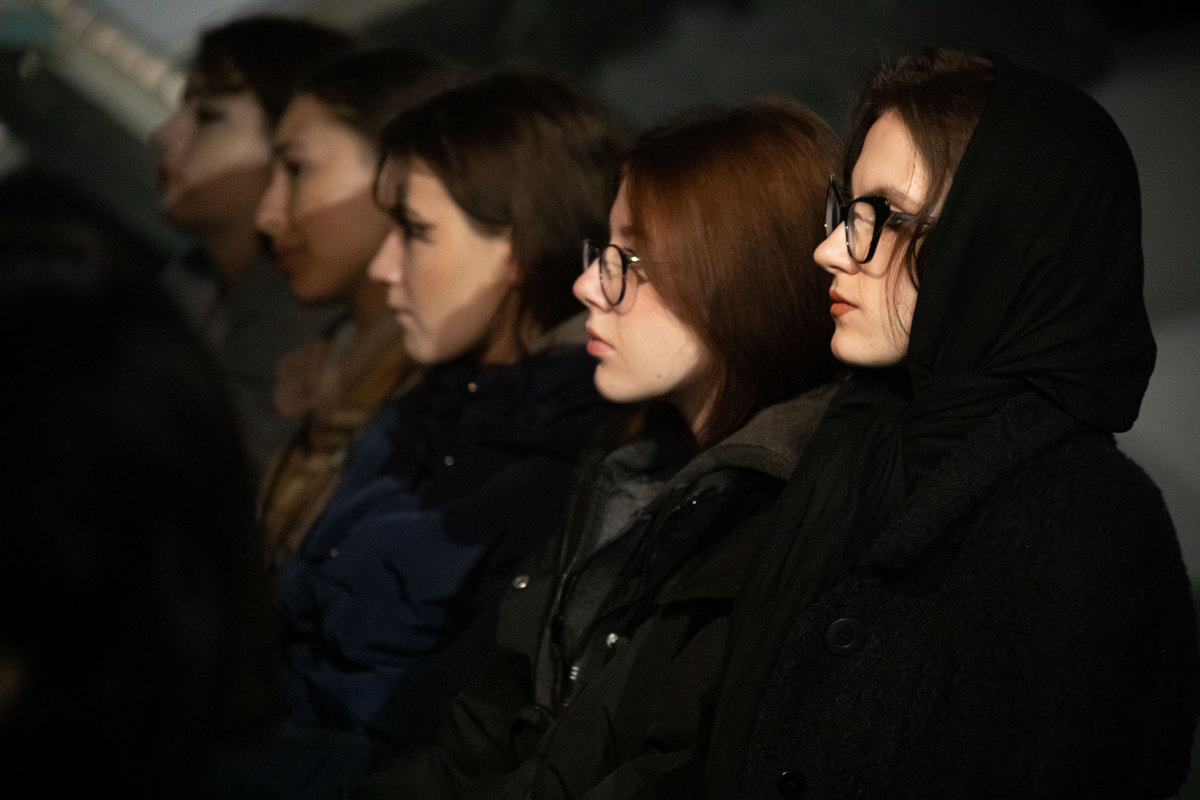
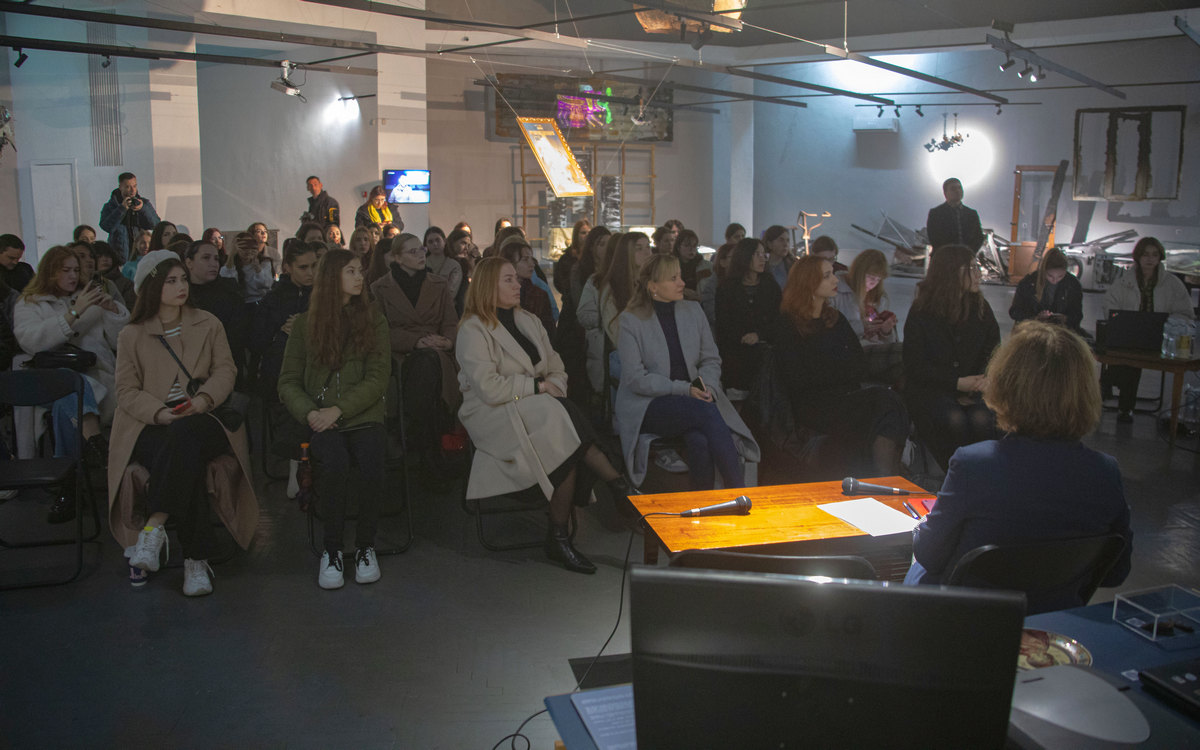
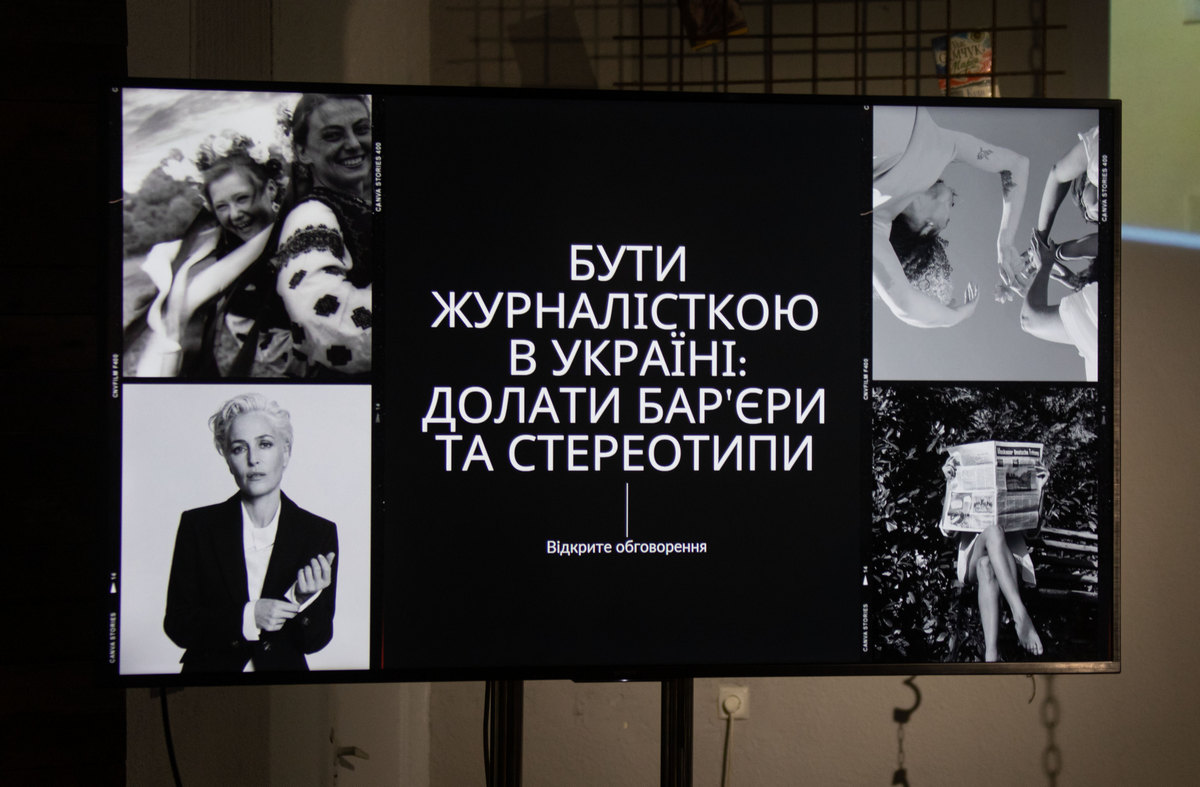
REFERENCE INFORMATION. The Executed Free Speech exhibition opened by the NUJU at the National Museum of the History of Ukraine in the Second World War was based on the testimonies of Ukrainian journalists about russia’s war crimes.
EXHIBITION ORGANIZERS: the NUJU, with the support of the civil rights defender organization Civil Rights Defenders (Sweden); the network of Journalists’ Solidarity Centers operating with the support of the International and European Federations of Journalists, as well as UNESCO; National Museum of the History of Ukraine in the Second World War.
NUJU Information Service

 THE NATIONAL UNION OF
JOURNALISTS OF UKRAINE
THE NATIONAL UNION OF
JOURNALISTS OF UKRAINE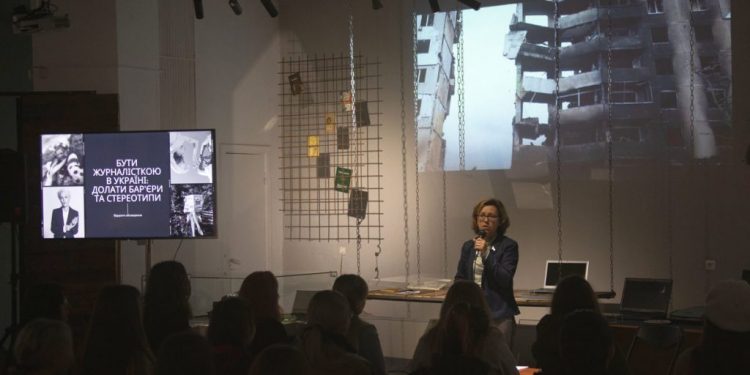
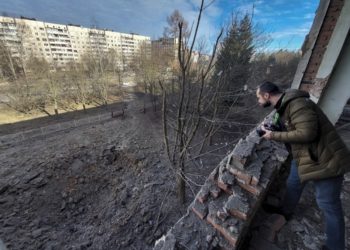
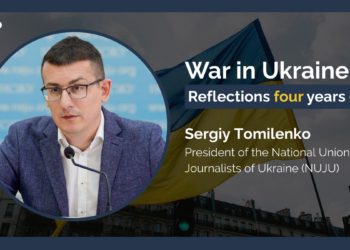
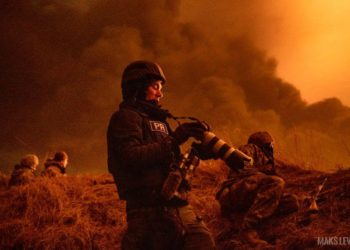













Discussion about this post